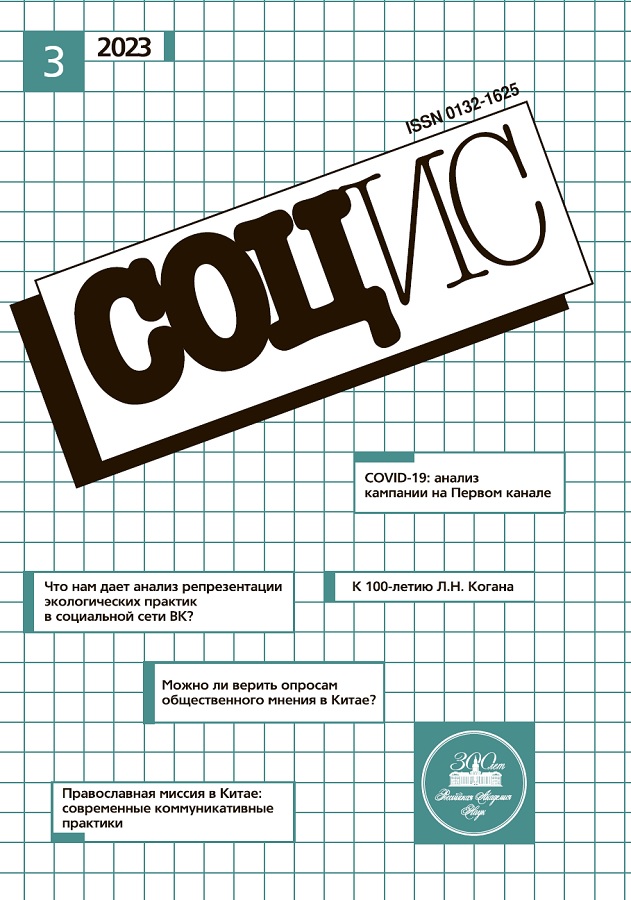Fellow Degree: Motives for Thesis Defence and Professional Occupation
- Authors: Simakova A.V.1, Pakhomov S.I.2, Gurtov V.3
-
Affiliations:
- Institute of Economics of Karelian Research Centre of RAS
- National Research Nuclear University MEPhI
- Petrozavodsk State University
- Issue: No 3 (2023)
- Pages: 141-147
- Section: Articles
- URL: https://edgccjournal.org/0132-1625/article/view/661648
- DOI: https://doi.org/10.31857/S013216250023034-0
- ID: 661648
Cite item
Abstract
The article deals with candidates of sciences’ both motives and professional occupation trajectory after thesis defense. Thesis defense is an important point in scientific career development but not all candidates of science continue their research after thesis defense. There are different areas of research activity. Empirical basis of this study is dealing with survey data of candidates of sciences who defended their thesis starting with January 1, 2016 till December 31, 2020. The survey was conducted by Budget Monitoring Center of PetrSU in July-September 2021. Obtained results showed that thesis defense is conditioned on mainly by personal motives, by desire to be engaged in research activities and to develop professionally in this area. Every fourth candidate of science continues doing research after defense, another 68.5% are doing research from time to time. Candidates of science who defended their thesis in 2016 are more active in publishing research results rather than those who defended their thesis in 2020. Scientific projects participation is more typical for those engaged in research activities within natural and technical sciences.
Full Text
About the authors
Anna V. Simakova
Institute of Economics of Karelian Research Centre of RASRussian Federation, Petrozavodsk
Sergey I. Pakhomov
National Research Nuclear University MEPhIRussian Federation, Moscow
Valery Gurtov
Petrozavodsk State UniversityRussian Federation, Petrozavodsk
References
- Бережная Ю.Н., Гуртов В.А. Аспирантура в новых реалиях // Университетское управление: практика и анализ. 2017. № 3. Т. 21. С. 57–65. doi: 10.15826/umpa.2017.03.037.
- Бережная Ю.Н., Гуртов В.А., Дмитриев Г.И. Подготовка научных и научно-педагогических кадров высшей научной квалификации: состояние и проблемы // Планирование и обеспечение подготовки кадров для промышленно-экономического комплекса региона. 2019. Т. 1. С. 114–118.
- Гуреев В.Н., Мазов Н.А., Ильичёв А.А. Карьерный рост ученых и публикационная этика // Вестник РАН. 2019. № 3. С. 270–278. doi: 10.31857/S0869-5873893270-278.
- Калгин А.С., Калгина О.В., Лебедева А.А. Оценка публикационной активности как способ измерения результативности труда ученых и ее связь с мотивацией // Вопросы образования. 2019. №1. С. 44–86. doi: 10.17323/1814-9545-2019-1-44-86.
- Мусина-Мазнова Г.Х. Зарубежные и отечественные теоретические подходы к изучению понятия «карьера» // Наука и школа. 2011. № 4. С. 101-107.
- Обзор деятельности сети диссертационных советов в 2020 году: аналитический доклад / Под ред. С.И. Пахомова. Петрозаводск: ПетрГУ, 2021.
- Попова И.П. Формирование карьерного старта в науке: влияние семьи и социального контекста // Социологические исследования. 2021. № 12. С. 100–112. doi: 10.31857/S013216250017245-2.
Supplementary files










